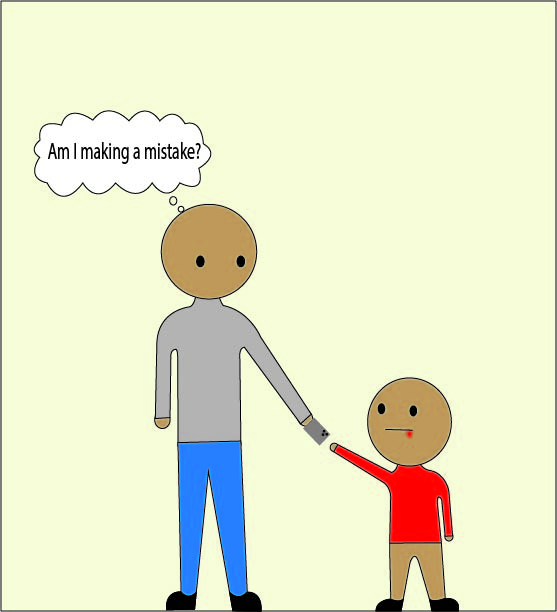The Age Kids are Ready for Their First Phone
February 16, 2022
In recent years, owning a smartphone has become an ever-growing necessity for adults and teens alike. In high school, many teachers will have students use their phones for activities, to turn in assignments, and many other related tasks. According to a survey done in 2019 by NPR, just over half of all children get their first phone by age 11, and about one in five have one by the age of eight. This begs the question of how old kids should be when receiving their first phone.
Children receive phones for all kinds of reasons. For example, sophomore Owen Ostrom says, “I got a phone pretty early on. Probably around sixth grade mainly so I could contact my parents while I was at soccer practice.” Safety is a very good reason for a kid’s first phone and many students can agree that communication with their parents was the original purpose for their phone. Of course, many students do not actually spend the majority of their screen time contacting their parents. Many students’ most used apps are social media apps. A report released by Common Sense Media found that 13-18 year olds in the United States have an average of seven hours and 22 minutes of screen time per day. Considering this shockingly high number, it is not too big of a surprise to see why parents can be reluctant when their kids near the age where a phone seems essential.
Another factor in deciding what age a child is ready for a device is responsibility. Junior Samuel Chinn says, “I got my first phone at 16, which is pretty late among my peers. Even so, I’m not sure if I was responsible enough at that age, but I definitely was able to handle it shortly after getting it.” People become more responsible once they actually get a phone and start having to manage themselves. While some teens may seem too young to be able to handle a phone, upon receiving a device, they are forced to learn how to manage it which is why getting your first phone at a younger age might not be the worst option.
Another big reason why parents are opposed to letting their children have cell phones at a young age is because of the internet. A huge, distressing place where anyone can talk with whoever they want and post whatever they want is understandably enough reason for parents not to want their children anywhere near it. Contrary to that belief, most teenagers will tell you that the internet is not as bad as it seems. Freshman Sahasra Kandula says, “My experience on the internet has been generally good. There are definitely some bad things on [the internet], but that is inevitable and I have met a lot of positive communities and wonderful people online.” Though one may worry about a child’s safety because of the dangerous people on the internet, the good largely outweighs the bad and with proper education of online safety, making friends on the internet can be just as great as making friends in person. Additionally, senior Grace Tran has also had many positive experiences online: “I was able to get an internship because of social media and the majority of my job is online as well.” Tran proves that the internet is not all just bad people and scams, but a place where one can pursue their interests and benefit their lives. Though to some the internet may just seem like a terrifying place where personal information gets exposed and children talk to strangers, many will find that it is actually a positive environment to meet new people and discover new opportunities.
Although the argument of how old kids should be when receiving their first phone will continue to be disputed, there is no doubt that owning a phone can positively affect kids of varying ages. That is not to say there are not some precautions one must take when dealing with their new device and access to the internet. Kandula says, “Stay off suspicious websites and do not click on links or pop-ups. You will probably get a virus.” Chinn agrees with this while also advising to watch out for spam emails or scam callers. Ostrom adds, “Do not download apps you know you will spend too much time on, especially not TikTok,” which Tran also recommends. The age kids should be when receiving their first phone definitely varies from person to person and some kids might be responsible enough to get one in sixth grade while another might still not be ready even in high school. Whether you believe kids should be able to have devices at six years old or 16 years old, in this day and age, there is no doubt how beneficial cell phones are.



